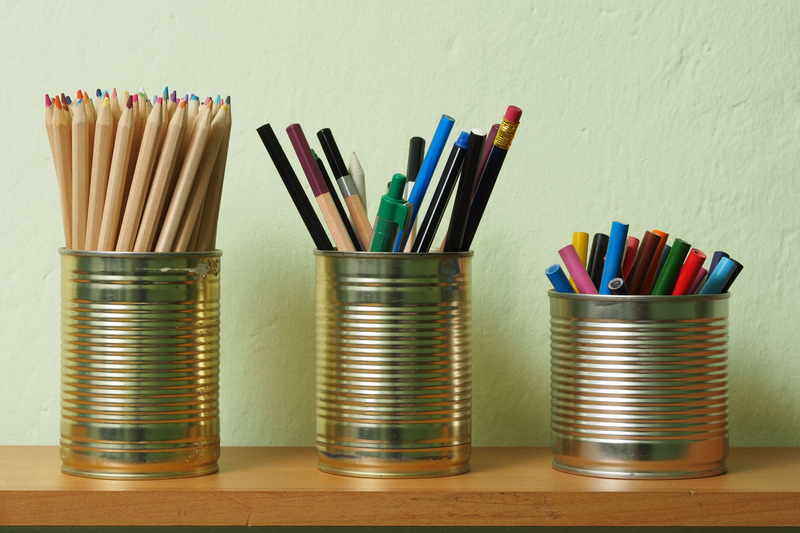Innovative Building Material Substitutions
Posted on 21/03/2024
Introduction
Innovative building materials are becoming more and more popular as homeowners and developers look for ways to reduce their environmental impact. Traditional building materials such as concrete, steel, and wood can be expensive and have a large carbon footprint due to their production process. Eco-friendly substitutes, such as sustainable bamboo or recycled plastic, offer cost savings and environmental advantages. By using alternative building materials, people can create structures that are both functional and attractive while having minimal impact on the environment.

Benefits of Innovative Building Materials
Innovative building materials are beneficial in several ways. First, they contribute to a greener environment by reducing the amount of energy used to construct projects. They also require fewer resources for production and transportation, resulting in less pollution. Additionally, innovative building materials are often more affordable than traditional materials, allowing for greater affordability for residential and commercial projects. They also last longer than conventional materials since most modern building products feature improved durability and stability under extreme weather conditions.
Furthermore, some of these innovative building materials are made from natural sources that would otherwise be discarded or left unused. For instance, eco-friendly cork insulation is harvested from cork trees rather than being synthesized in laboratories with toxic chemicals; this type of insulation offers excellent insulating properties while also providing a more sustainable option for insulating homes and businesses. Similarly, certain types of clay bricks are made from naturally occurring clays which have been sun-dried and baked in kilns at low temperatures resulting in an energy efficient brick with superior strength compared to other mass produced brick options.
Types of Innovative Building Materials
There are many types of innovative building material substitutions available today including: cork insulation, straw bales, bamboo plywood, rammed earth structures, recycled glass tiles, cellulose fiber insulation, fly ash bricks, geopolymers concrete, mycelium bricks and blocks, wool insulation wall panels, rammed earth flooring tiles, lightweight concrete roof tiles and many more. Each of these presents unique benefits including improved thermal performance and soundproofing characteristics as well as reduced costs associated with production, installation and maintenance.
Cork Insulation
Cork insulation is one of the most environmentally friendly forms of insulation available today. It is derived from natural cork oak forests which are sustainably managed with minimal impact on the environment. Cork insulation is non-toxic yet provides superior thermal performance compared to traditional synthetic foam insulations since it traps tiny pockets of air which act like tiny bubbles trapping heat within the walls/ceiling space of a home or office space. In addition to its superb thermal properties cork also has soundproofing qualities helping to dampen sound between floors/walls in multi story buildings or between rooms in a single family house/apartment block. Additionally it is fire-resistant making it an ideal choice for fire safety in all kinds of buildings from schools to restaurants and hotels.
Bamboo Plywood
Bamboo Plywood is created by fusing multiple layers of bamboo strips together with adhesive creating an incredibly strong board that can be used in construction projects including flooring and furniture making applications. Bamboo's regenerative properties mean it's a much better choice over traditional tropical hardwoods when it comes to sustainability; it grows much faster therefore can be harvested at a greater rate without compromising the ecology balance present in these regions unlike trees which take years to mature before they're ready for harvest plus there's no need for replanting once cutting stops as fallen branches can regrow into new plants again quickly (1). Furthermore bamboo plywood doesn't require any chemical treatments meaning it's free from harmful glues/resins that could leach into the environment over time like treated lumber does thus making it an overall greener option for consumers concerned about their carbon footprint during their project builds.

Straw Bales
Straw bales have become increasingly popular when it comes to sustainable construction due to their many benefits; straw bales act like both an insulator & structural element helping keep the inside temperature consistent throughout winter & summer while providing reliable support & durability against seismic events & high winds (2). Straw bale homes also provide good air quality thanks to the breathable nature of straw fibers allowing moisture levels inside walls & roofs to stay even thus preventing mold growth seen in other wall systems (3). When handled with care during construction straw bales will last many decades before needing replaced; therefore offering significant cost savings compared to other homebuilding options over time while still maintaining great aesthetics when finished off properly thanks to its interesting textures & soft appearance that resembles strawboard siding panels often found on luxury homesteads across America & around the world however minus all the maintenance required due these type siding's over time (4). So if you're looking for an eco-friendly yet cheaper way of constructing your dream home why not consider straw bales instead?
Conclusion
Innovative building material substitutions offer numerous environmental benefits while enabling affordable construction projects that can last decades before needing replaced or repaired thanks to their superior durability compared to traditional building products made from timber/concrete etc.. As technology advances so too do these products with creative ideas such as mycelium bricks pushing boundaries further with their biodegradable nature offering yet another approach towards green construction without sacrificing comfort or aesthetic value found within traditional solutions whether residential/ commercial related projects upkeep or renovations alike - either way make sure you research each material properly before committing your investment too!



